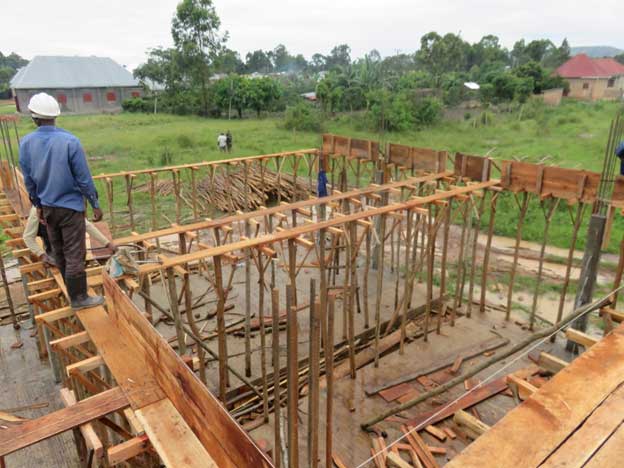A School & Cultural Institution Aims to Level the Playing Field for Women & Girls in Rural Uganda

TRONDHEIM, Norway / DENVER, USA, Oct 18 (IPS) - As we honored women and girls last week, on the annual International Day of Rural Women on October 15, we want to highlight how a community is coming together to change the lives and livelihoods of rural women and girls in Uganda.
While the Tat Sat Community Academy Project (TaSCA) in Kasasa, Uganda, seeks to improve the livelihoods of all community members, there is a particular emphasis on uplifting women and girls. This is of greater importance now, with the COVID-19 pandemic having an outsized effect on women and girls across the world.
According to The World Economic Forum’s 2021 Global Gender Gap Report, school closures globally saw 1.54 billion children staying home, including 743 million girls. This shift has created barriers for access to health services, nutrition, and economic opportunities.
TaSCA board member Namayega Agnes says that in her rural community of Kasasa, women and children have not been given an equal chance for financial progress, development and contribution to the wellbeing of the community.
She also says challenges are more severe for girls, who face constant pressure to drop out of school to marry or pursue other perceived pathways to stability.
The TaSCA project, she believes, creates a gender balance – a shift in the current perceptions about the women and the girls in the community to be equally productive members of the community.
TaSCA is a community-led project being implemented by the TaSCA Kasasa Community Board (TKCB) in partnership with the Peace Africa Children’s Ensemble, a local nonprofit chosen by the community to help develop the project.
The effort is being supported by The InteRoots Initiative, a nonprofit organization which we co-founded a few years ago after previously collaborating together. Through an innovative model we call roots-up philanthropy, InteRoots is working to support the community members of Kasasa who are building TaSCA, which will include a school, savings and credit co-op, and cultural institution.
We hope TaSCA will provide equity in education, access to financing and financial support networks, and preservation of cultural practices. Additionally, community members also receive support with access to microlending through the Savings and Credit Cooperative Organization (SACCO), which will provide community financing, student/family financial support and economic education.
The community has said that it is imperative that along with access to microlending, students learn how to handle finances so that they can be equipped in the future for other opportunities.
Of immediate interest to the community is using the SACCO to invest in a mill, which will be used by the farmers in the community to produce locally instead of outsourcing at a high cost. The locally sourced food will also be available to the school’s students and staff members.
The Graduate Enterprise Fund, meanwhile, will allow students, upon graduation, to submit a plan for set-aside funds for purposes that will further goals. This may include continuing their education or starting a business.
The community board must approve the plan, and graduates will receive financial support for around one to two years, providing economic stability beyond graduation.
As stated above, now is the time for such initiatives. Because of the pandemic and its effects, it is estimated that an estimated 96 million people will be pushed into extreme poverty, of whom 47 million are women, according to UN Women.
We cannot stand idly by as we watch our fellow citizens of the world face such challenges and obstacles. We are excited by the potential TaSCA can have and are eagerly awaiting its opening in 2022.
Now more than ever, communities must come together to transform and uplift women and girls, especially in rural areas that may face greater barriers to access to health care, technology and education.
We hope Kasasa will be a model for others and we are heartened by the support the community has received so far. For updates on TaSCA and InteRoots’ work, please visit InteRoots.org.
Ronald Kibirige is co-founder and board chair of The InteRoots Initiative. Scott Frank is co-founder and executive director of the organization.
Follow @IPSNewsUNBureau
Follow IPS News UN Bureau on Instagram
© Inter Press Service (2021) — All Rights Reserved. Original source: Inter Press Service
 Global Issues
Global Issues